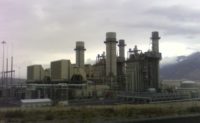The U.S. Supreme Court ruling that state officials overstepped their authority in subsidizing the construction of a 725-MW gas-fired power plant in Charles County, Md., was decided on narrow issues and may not be a death knell for state-pushed power programs, even in Maryland, observers say.
The court struck down Maryland’s power plant construction subsidy in an April 19 opinion, because the incentive would in effect adjust the wholesale rate for power, which federal law reserves for the Federal Energy Regulatory Commission (FERC). “That Maryland was attempting to encourage construction of new in-state generation does not save the program,” Justice Ruth Bader Ginsburg said in the unanimous opinion.
But Ginsburg noted that the ruling is limited and was rejected only because it disregards wholesale rates required by FERC. “We do not address the permissibility of various other measures states might employ to ensure development of new or clean generation,” she said.
Construction of the $775-million project at the center of the litigation, known as the Saint Charles Energy Center, is led by Montreal-based SNC-Lavalin Group and is set to be complete before the end of the year.
Nothing in the opinion should be read to foreclose Maryland and other states from encouraging the development of generation, the opinion said. It listed a number of ways that states could legally subsidize the construction of new generation, including tax incentives, land grants, direct subsidies or the construction of state owned plants.
FERC, the lower courts that also considered the case, and now the high court, have emphasized that they want to avoid interfering with state prerogatives, especially as pertains to clean energy.
But Maryland’s specific programs to incentivize fossil fuel power plants couldn’t survive on technical grounds.
Maryland linked the subsidy to the wholesale rate for power by requiring that state utilities pay the winner of the Charles Country project contract, Silver Spring, Md.-based Competitive Power Ventures, the difference between the price it received from auctioning the plant’s capacity into the regional marketplace and the price it bid into the state’s request for proposals.
The auction held by the PJM Interconnection—the regional transmission operator across 13 states from Virginia to New Jersey and west to parts of Indiana and Illinois— is regulated by FERC.
Wholesale Power Prices
That requirement, in effect, set the interstate wholesale price for power, the high court said.
Kevin Hughes, chairman of the Maryland Public Service Commission, said in a statement that he was "disappointed that the Court found the form of our arrangement was impermissible," but added that "regulators are pleased that the decision reaffirms the right of states to procure new generation."
"States can get around the subsidy issue,” said Paul Patterson, an industry analyst, but Travis Kavulla, president of the National Association of Utility Commissions, said the narrow ruling left many questions open and will result in further litigation.
The wholesale power markets were established as a result of actions states took late in the 20th Century to deregulate the industry. Transmission organizations were established to manage certain segments of the power grid and ensure the availability of and adequate power supply.
Maryland issued a request for proposals in 2011 to encourage the development of new generation in a region of PJM where importing power from lower cost areas is difficult. Maryland regulators determined that new generation was needed to ensure the continued, long-term reliability of the power supply out of concern that the PJM capacity auction had failed to attract new generation to the state.
In theory, the capacity auction encourages the development of new generation when clearing prices are high, and encourages high cost plants to retire when prices are low.
The Electric Power Supply, whose members brought the lawsuit against Maryland, said the decision is a victory for the economic integrity and viability of wholesale power markets.
“The unanimous decision strengthens FERC's hand at a critical time when it comes to properly defining the appropriate roles for federal and state actions impacting wholesale power markets,” EPSA said in a statement.
In a blog post, Allison Clements, a power sector sustainability expert for the Natural Resources Defense Council, said there "was some concern that the Supreme Court might issue a decision significantly restricting states’ ability to promote and procure clean energy, which stemmed from an understanding that states often direct and encourage utilities to procure renewable energy via long-term contracts some viewed as similar to Maryland’s program." But she added, "the eight justices put this fear to rest. The Court’s opinion contains no legal showstoppers that would prohibit states from pursuing their own clean energy agendas."





